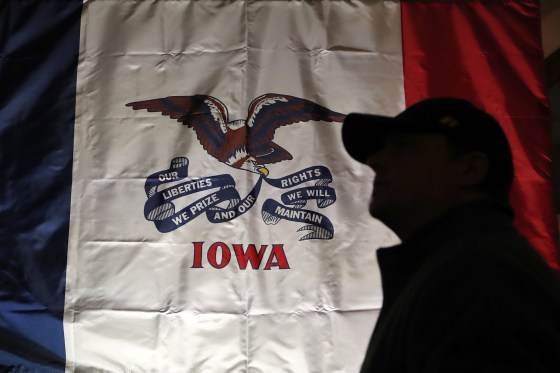Democratic National Committee leaders on Friday recommended nixing so-called “virtual caucusing” plans for the Iowa and Nevada caucuses, saying the technology is not sufficiently secure.
DNC Chairman Tom Perez and two other organization leaders said a review of the plans by the group's security teams revealed "there is no tele-caucus system available that meets our standard of security and reliability given the scale needed for the Iowa and Nevada caucuses and the current cyber-security climate."
"For these reasons, we are recommending to the committee that virtual caucus systems not be used in the Iowa and Nevada 2020 caucus processes," Perez, and Rules and By-Laws Committee Co-Chairs Lorraine Miller and Jim Roosevelt, said in a statement.
Security surrounding the virtual caucusing had been a major concern, with many inside the party fearing a potential threat of the operation being hacked.
News of the recommended rejection was first reported by the Des Moines Register, which reported that the decision followed a meeting of the DNC’s Rules and Bylaws Committee last week in San Francisco.
NBC News reported last month that Democratic voters in Iowa and Nevada would be able to participate in their states' crucial early presidential caucuses next year without actually having to show up.
The system in Iowa and Nevada would have worked by allowing Democrats to use a telephone to dial into a "virtual caucus," where they would have ranked a handful of their choices for the presidency. Under Iowa’s plan, Democrats in the state would have been offered six chances to "tele-caucus" in the days leading up to its first-in-the-nation caucus on February 3.
Nevada, whose contest comes shortly after the Iowa and New Hampshire events, was planning to offer four days of in-person early caucusing and two days of dialing into the virtual caucus during the run-up to its February 22 main event.
The plans came in response to a mandate from the DNC, which wanted to make caucusing easier following the 2016 Democratic primary process.
On Friday, Perez said he would recommend issuing a waiver to Iowa and Nevada for the requirement.
The head of the Iowa Democratic Party said in a statement he was "disappointed" with the DNC's decision but would abide by it.
"We are obviously disappointed by this outcome, and we continue to have confidence in the abilities of our vendors, but if the DNC does not believe the virtual caucus can be secure, then we cannot go forward," the state party chairman, Troy Price, said.
Price said the state Democratic Party would continue to explore alternatives for an absentee option to “increase accessibility."
The virtual caucusing system would have marked a major change from election years past but had been designed to make the Democratic caucuses more democratic and boost participation since not everyone has the time or ability to spend several hours of a specific evening attending an in-person caucus meeting.
Security, however, had been a major concern, although the Iowa Democratic Party's plan would have taken the precaution of requiring those who wanted to take part in the virtual caucus to pre-register as Democrats months in advance, despite the state's same-day voter registration.



